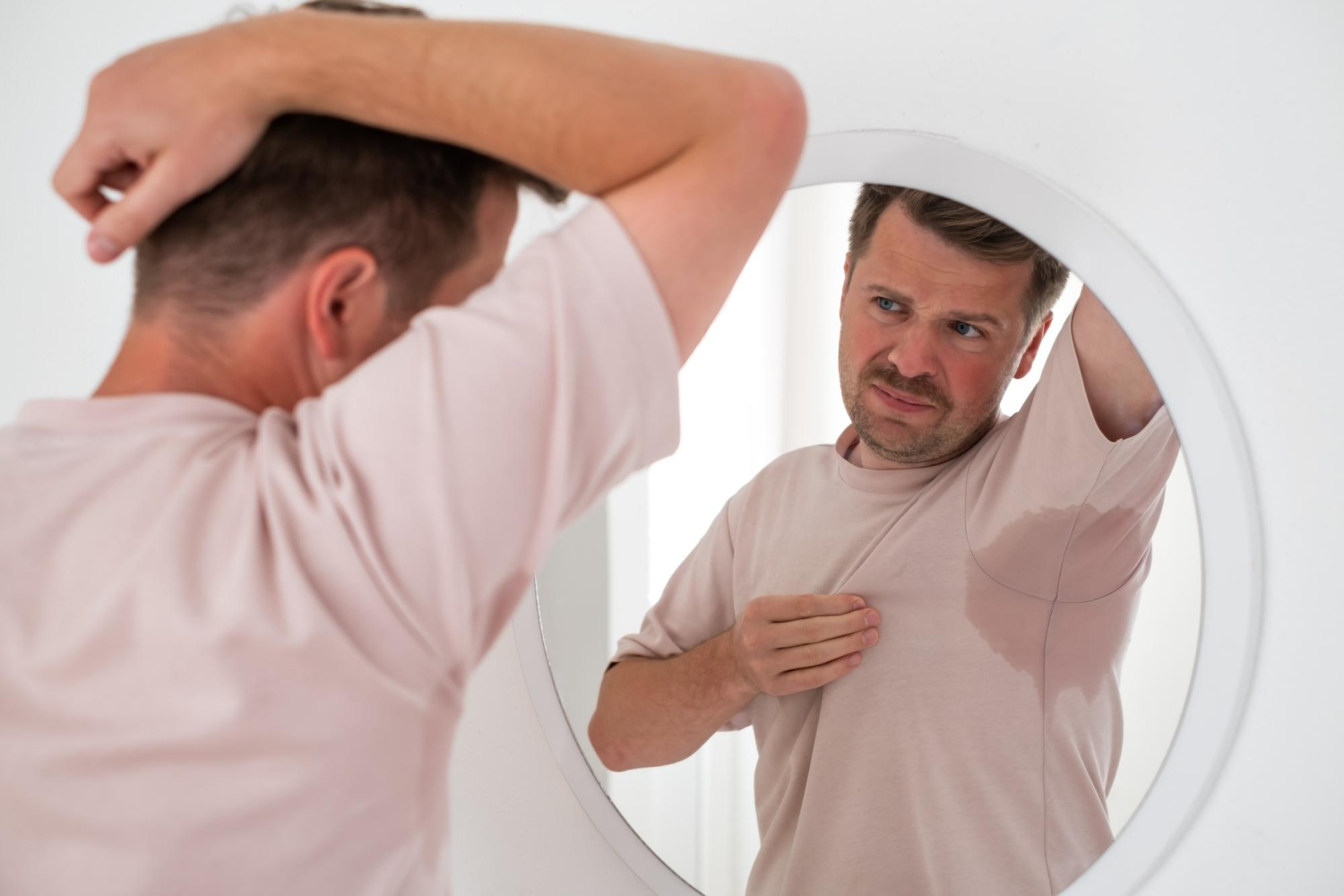Sweating is important in order to keep your body cool and to function properly. Normal sweating is a part of everyday life and is key to a healthy lifestyle. Excessive perspiration, also known as hyperhidrosis, can be disruptive and embarrassing. Excessive perspiration does not help the body run more efficiently – instead, it can cause stress, which can create other medical issues.

Specialties
Neurology
Pain Management
Diagnostic Tests
Therapeutic Procedures
Hyperhidrosis can decrease a person’s quality of life. A person may sweat uncontrollably even if the temperature is cool. This condition can occur in the hands, feet, and armpits and can seem to have no cause or trigger. Hyperhidrosis does seem to have a genetic component as the condition is likely to occur in families. A person with this condition can easily sweat through clothes, a situation that can worsen given emotional excitement or worry.
At times, excessive amounts of sweat can be related to an underlying medical condition. In these cases, addressing the excess sweat begins with treating the underlying medical issue. Medical conditions that can result in hyperhidrosis include:
• Anxiety disorders
• Cancer
• Menopause
• Heart diseases
• An injury to the spinal cord
• Reactions to certain medication
• Stroke
Treatment for hyperhidrosis will depend on the root cause of the sweating problem. Available options for treatment include:
• Prescription antiperspirant – Often, the antiperspirants found in stores are not strong enough to address hyperhidrosis. Prescription antiperspirant can address underarm sweat.
• Medication – Some prescription medication can be described that specifically targets the sweat glands in order to stop the excess sweating.
• Iontophoresis – This procedure uses an electronic pulse in order to deactivate the sweat glands.
• Neurotoxin – a medication often associated with plastic surgery, may be used in order to numb the nerves that are responsible for sweating. Because your nerves are not able to receive the signal to sweat, the sweat glands will stop production. For additional information on the treatment options for excessive perspiration, speak with a member of Cayman Neurology and Pain Management team today.
Copyright © 2024 Cayman Neurologist. All Rights Reserved.